Name: Prostate Specific Membrane Antigen Antibody clone EP192
Description and aplications: Glutamate Carboxypeptidase 2 (GCP2) or folate hydrolase 1 (FOLH1), also known as prostate specific membrane antigen (PSM or PSMA), is a type II homodimeric transmembrane protein of 750 amino acids of approximately 100 kDA of molecular mass that is encoded by the FOLH1 gene, which is located in the chromosome region 11p11.12. The FOLH1 protein is functionally characterized by an intense folase-hydrolase and dipeptidase activity on N-acetylated wastes of tri-alpha-glutamate peptides, regulating the absorption of folate in the intestine and the excitatory neurotransmission associated with the hydrolysis of the neuropeptide N-acetylaspartylglutamate in the CNS (central nervous system). In pathologic circumstances in the CNS, an excess of function of FOLH1 causes an excitotoxic effect due to the generation of high levels of glutamate that, as a consequence, leads to the death of motor cells in amyotrophic lateral sclerosis in both its sporadic and familial variants. In fact, FOLH1 inhibitors produce protective effects in this type of conditions when the glutamate levels decrease. In normal tissues, the protein is present in large amounts in the prostate epithelium, where it has an unknown function. However, it is known that in tumors that derive from this gland, FOLH1 is involved in the tumor progression. The protein can also be found in the small intestine (brush border), urinary epithelium, kidney, testicle, ovary, uterine tubes, breast, suprarenal gland, liver, esophagus, stomach, colon and brain (mainly brainstem and corpus striatum). In neoplastic tissues, FOLH1 can be present in tumors of the small intestine, brain, kidney, liver, spleen, trachea, spinal cord, and capillary endothelium. In the prostate, the PSMA molecule (FOLH1) can be found in both benign and malignant lesions, although in neoplasms, an increase in the intensity and number of stained cells in direct relation to the aggressiveness of the carcinoma can be observed. Therefore, it is also indirectly correlated with the expression of androgen receptors. In comparison with the prostate specific antigen (PSA), the determination of PSMA in tumors is a more sensitive procedure but less specific. Therefore, PSMA antibody is used in the diagnosis and prognosis of prostate tumors and as a possible marker for various neurodegenerative brain diseases such as schizophrenia and Alzheimer’s and Huntington’s diseases. Likewise, the Indium-labeled 7E11 anti-FOLH1 monoclonal antibody (ProstaScint®) is used for the diagnostic imaging of primary and metastatic prostate tumors.
Composition: Anti-human PSMA rabbit monoclonal antibody purified from culture supernatant, filtered, sterilized and prepared in 10mM PBS, pH 7.4, with 0.2% BSA and 0.09% sodium azide
Intended use: Immunohistochemistry (IHC) on paraffin embedded tissues. Not tested on frozen tissues or Western-Blotting
Immunogen: Synthetic peptide corresponding to the human PSMA.

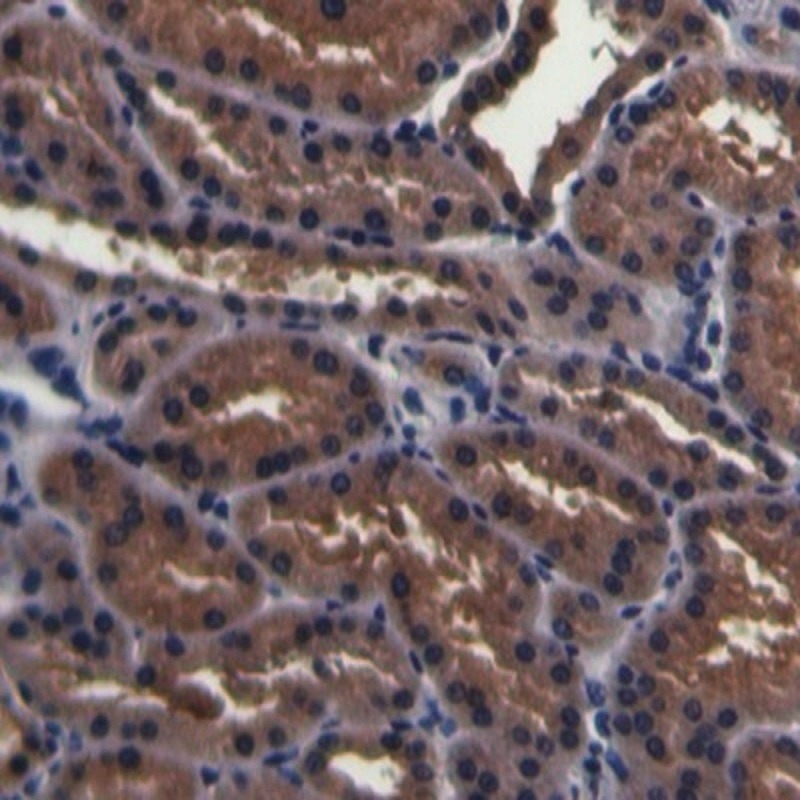
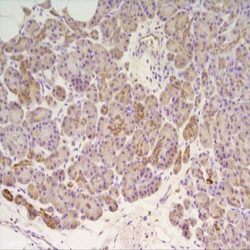
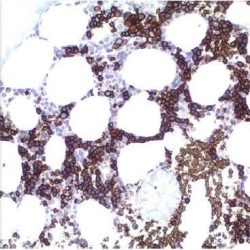
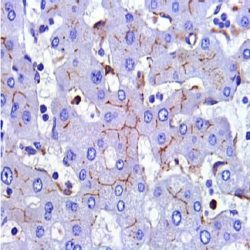
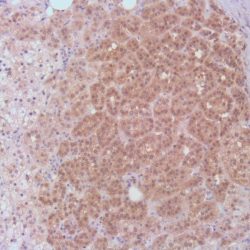
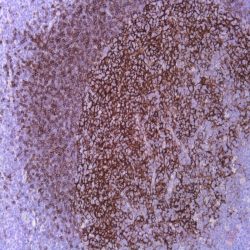
Reviews
There are no reviews yet.